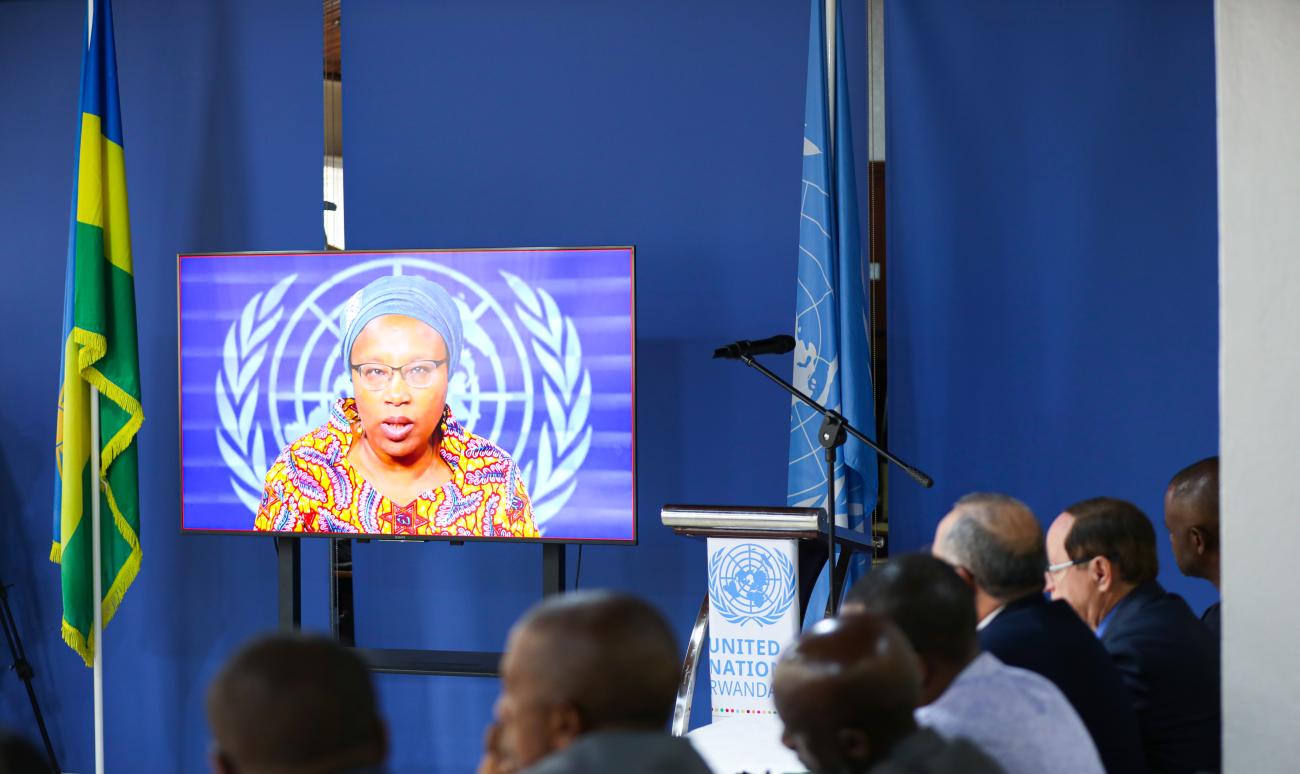In 1994, Emmnauel Rwibutso, 29, was in his mother’s womb. Only now can he narrate the ordeal his mother was going through during the 1994 genocide perpetrated against the Tutsi.
“During the genocide, my mother wished to die with me because she couldn't continue hiding with me in her womb anymore. She was tired, and militiamen were searching everywhere. So, she crawled into the sewage drain, hoping her belly would burst and I would die with her. But it didn't work,” he said with a profound melancholy.
Though Rwibutso and his mother miraculously survived, the genocide claimed the life of his father, who was a UN staff. His name is engraved on a monument built in the UNDP Rwanda compound. The death of Rwibutso’s father and other more than one million innocent Tutsis was a result of long-time planning. The planning included using various channels like radio, newspapers, and rallies to disseminate hate speeches against Tutsis.
Hate speech and genocide are intricately linked, with hate speech often serving as a catalyst for inciting violence and enabling the perpetration of mass atrocities. Hate speech spreads toxic ideologies, dehumanises targeted groups, and fuels societal division and animosity. In Rwanda, Hate Speech baptised Tutsis “Cockroaches.”
“Hate speech is not a joke. It can be lethal. We are all aware of how it preceded and contributed to the 1994 Genocide against the Tutsi through channels like Radio Télévision Libre des Mille Collines (LTLM). It continues to be weaponised worldwide, targeting people based on their identity," said Mrs. Alice Wairimu Nderitu, the United Nations Secretary-General's Special Advisor on the Prevention of Genocide.
Mrs. Nderitu addressed the participants who attended the hybrid event to mark the second edition of International Day for Countering Hare Speech, organised by the Office of the UN Resident Coordinator and the Ministry of National Unity and Civic Engagement on 16th June 2023. The ceremony brought together the diplomatic community, civil society, senior government officials, the National Consultative Forum of Political Organisations, the Rwanda Religious Leaders Forum, Heads of Agencies, and UN Rwanda staff.
Attending virtually, the Honorable Minister of National Unity and Civic Engagement, Honourable Minister Jean-Damascène Bizimana, reiterated Rwanda's commitment to collaborating with all stakeholders in the fight against hate speech.
“It all begins with the choice of an ideology that is then propagated through a discourse of hatred directed against a targeted population to be eliminated. I would like to reaffirm Rwanda's commitment to the fight against any form of divisiveness, and hatred, and, above all, to put an end to its spread through any means possible.”
During the event, the UN Resident Coordinator, Ozonnia Ojielo, emphasised the necessity of collective efforts from all stakeholders to eradicate hate speech, particularly among the new generation, through various means, including education.
He emphasised that by equipping communities with knowledge and understanding of positive speech, "we can empower individuals to reject hate and promote empathy and respect." He further emphasised the crucial role of education as a powerful tool in dismantling the foundations of hatred.
"I call upon all stakeholders present here—the youth, the diplomatic community, development partners, international organisations, civil society groups, and individuals—to actively participate in countering hate speech and contribute to shaping a society that rejects hate speech and division while embracing unity," he said.
As new social media platforms emerge, hateful content targeting individuals or groups based on ethnicity, race, religion, sexual orientation, or gender has become alarmingly prevalent online. This widespread dissemination of hate speech has contributed to creating echo chambers, where individuals with similar views reinforce each other's negative sentiments. This has prompted calls for stricter regulation of these platforms, and social media companies have been urged to do more to monitor and remove hateful content and implement measures that promote constructive dialogue and discourage hate speech. Fighting Hate Speech is one of the strategic priorities of the United Nations Rwanda as outlined in the UN Sustainable Development Cooperation Framework. The outcome number four, under the pillar of Social Transformation, states, “By 2024, people in Rwanda, particularly the most vulnerable, have increased resilience to both natural and man-made shocks and live a life free from all forms of violence and discrimination.”



